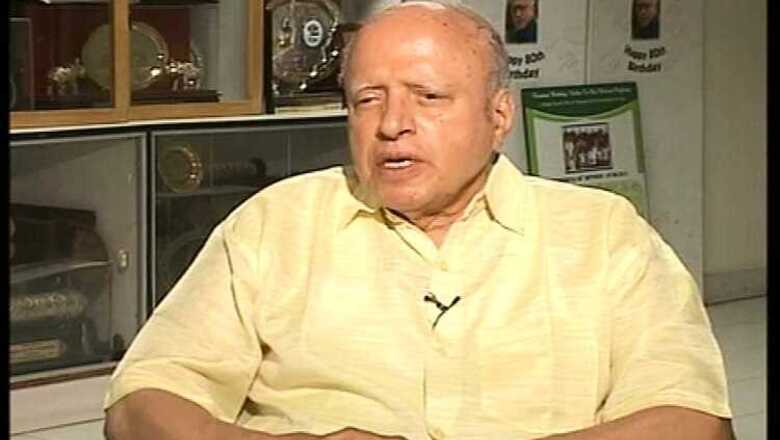
views
New Delhi: Father of India’s Green Revolution, MS Swaminathan, has said it’s disheartening to see farmers, who sustain life, having to agitate for their own livelihood.
“Need serious attention to their long-term economic viability,” he posted on Twitter. He further said if the government didn’t take care of farmers, everything else would go wrong.
“If agriculture goes wrong, nothing else will go right. That’s why ministry of agriculture should make farmers’ well-being centre of all programmes and policies,” he added.
In a series of tweets posted from his official Twitter handle, Swaminathan said it was time for the recommendations of the National Commission of Farmers to be implemented.
If agriculture goes wrong nothing else will go right. That's why @AgriGoI should make farmers’ wellbeing centre of all programmes & policies— M S Swaminathan (@msswaminathan) June 6, 2017
Long-term solutions are important to ensure that farming remains an occupation of choice among majority of our country’s rural population— M S Swaminathan (@msswaminathan) June 6, 2017
Low productivity & market volatility addressed through loan waivers give short-term relief to farmers not long-term viability of agriculture— M S Swaminathan (@msswaminathan) June 6, 2017
“It’s time that recommendations of the National Commission on Farmers, particularly in the chapter on ‘Farmers of the 21st Century’ are implemented,” he said.
The BJP, before 2014 general elections, had promised that it would implement recommendations of the M.S. Swaminathan Commission on the payment of an increased minimum support price (MSP) to farmers for their produce.
The renowned geneticist took to the social media soon after the farmers in Mandsaur, Madhya Pradesh, resorted to widespread arson for their demands.
“The agrarian crisis affecting small and marginal farmers in many states is mainly due to unfavourable cost-risk and return structure of farming. Low productivity and market volatility addressed through loan waivers give short-term relief to farmers not long-term viability of agriculture,” wrote Swaminathan.
“Answers to the agriculture distress are in enhancing small farm productivity and ensuring adequate public procurement at remunerative prices,” he added.
Swaminathan Committee’s report had highlighted unfinished agenda in land reform, quantity and quality of water, technology fatigue, access, adequacy and timeliness of institutional credit, and opportunities for assured and remunerative marketing as major causes of the agrarian crisis.
It recommended that Agriculture should be inserted in the Concurrent List of the Constitution. State level Farmers’ Commission should be set up with representation of farmers for ensuring dynamic government response to farmers’ problems.
It sought substantial increase in public investment in agriculture related infrastructure particularly in irrigation, drainage, land development, water conservation, research development and road connectivity etc.
On farm credit, it recommended: expand the outreach of the formal credit system to reach the really poor and needy. Reduce rate of interest for crop loans to 4 per cent simple, with government support. Moratorium on debt recovery, including loans from non-institutional sources, and waiver of interest on loans in distress hotspots and during calamities, till capability is restored.

















Comments
0 comment